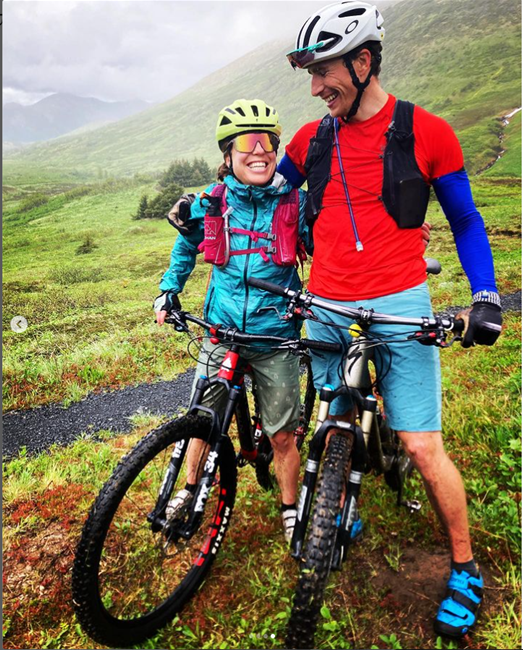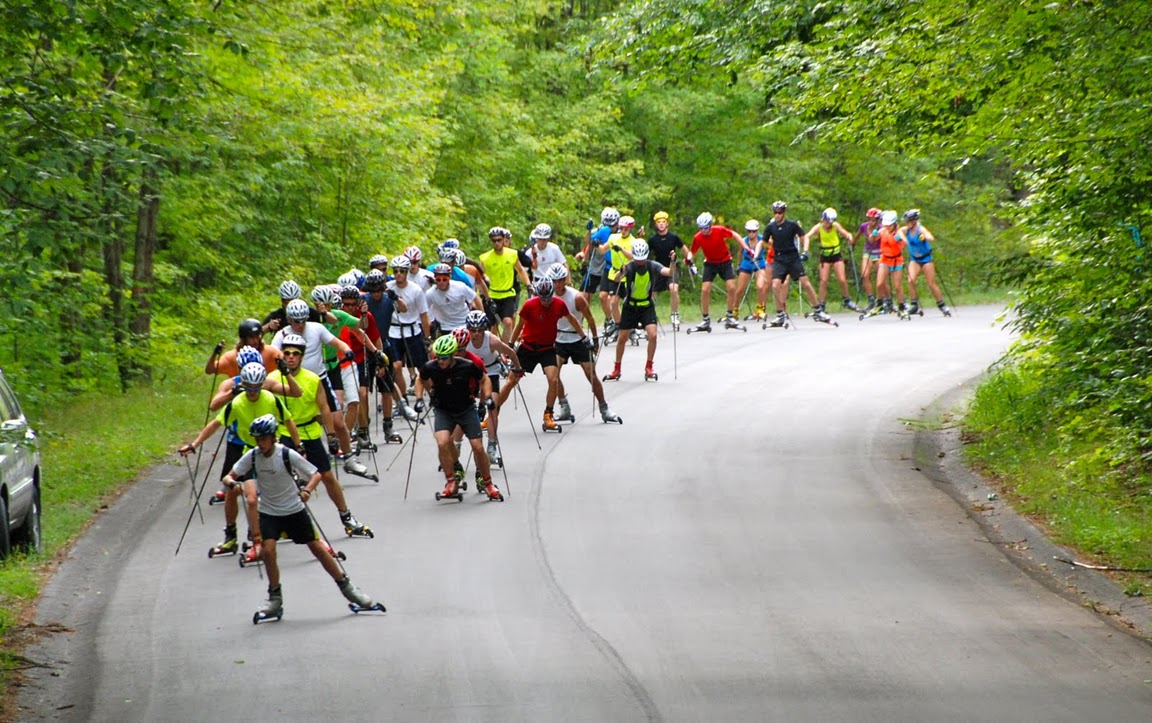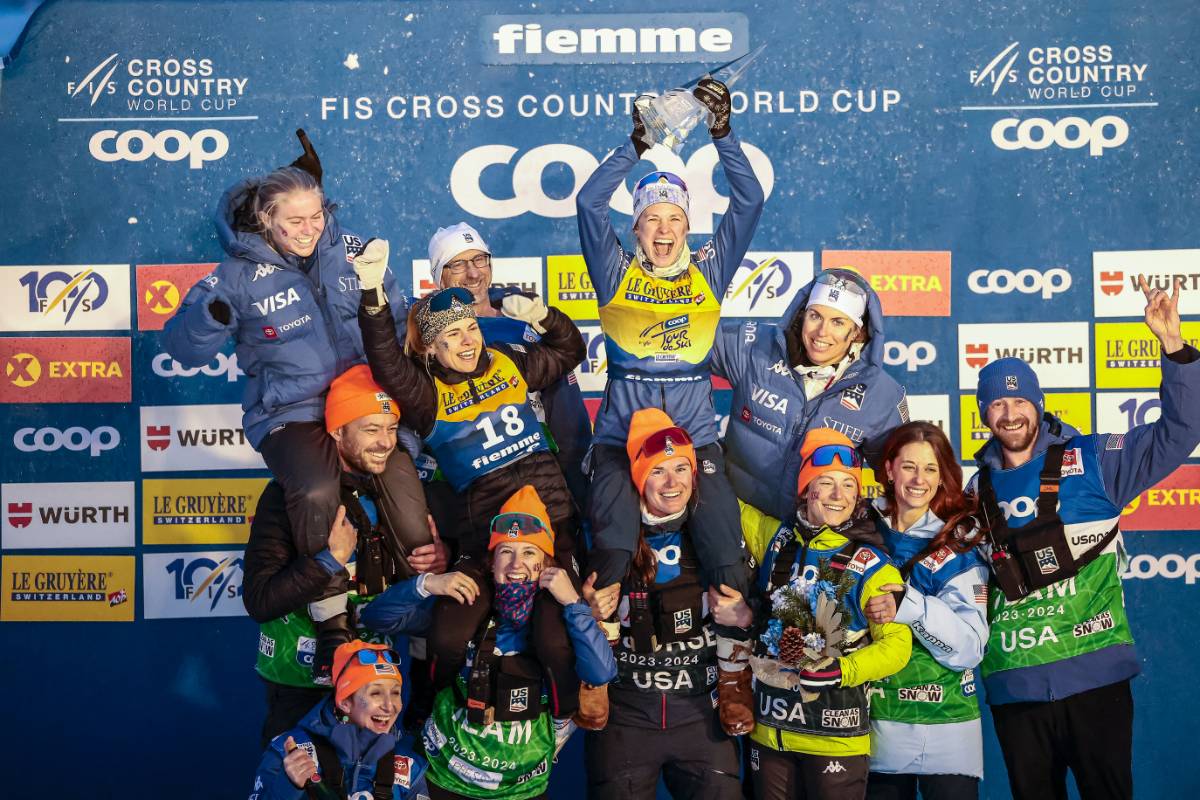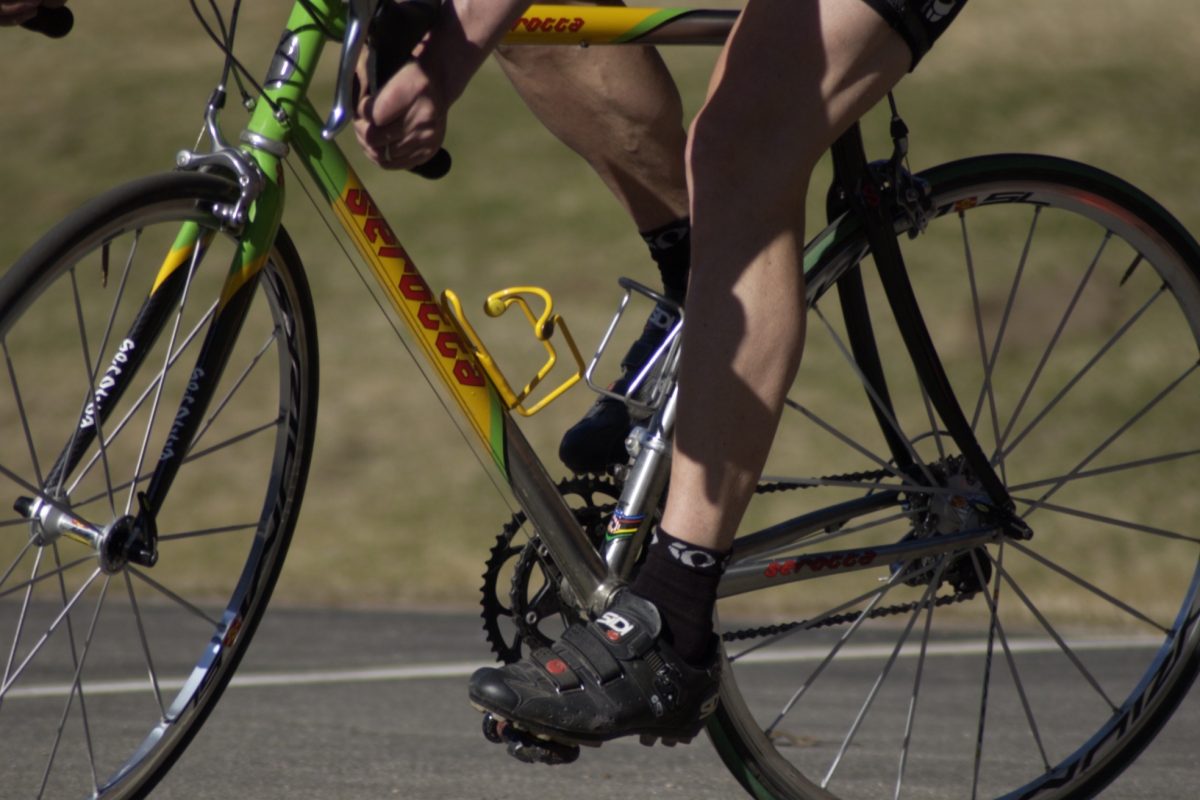 This coverage is made possible through the generous support of Marty and Kathy Hall and A Hall Mark of Excellence Award. Learn more about A Hall Mark of Excellence Award—or about supporting FasterSkier coverage—by contacting info@fasterskier.com.
This coverage is made possible through the generous support of Marty and Kathy Hall and A Hall Mark of Excellence Award. Learn more about A Hall Mark of Excellence Award—or about supporting FasterSkier coverage—by contacting info@fasterskier.com.
Stifel U.S. Cross-Country Team member, Rosie Brennan, continues her one-on-one interview with FasterSkier. She picks up from last week’s interview and talks about the stress of close finishes, her relationship with the media, and her reputation as a blue collar athlete.
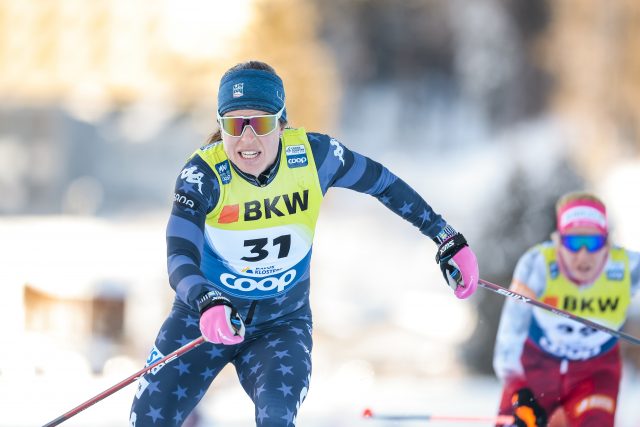
This interview has been lightly edited for clarity and brevity.
FasterSkier: Towards the end of last ski season, you said that there were a few goals you missed out on. Can you elaborate on that in terms of the goals you hit and the goals that you didn’t?
Rosie Brennan: I wanted a medal at World Champs, and I fell short of that. I was hoping to be in the top three in the overall, and I was fourth. So those were both near misses, which are always hard because results are largely uncontrollable. You can’t really control who’s in the race and what kind of day they’re having. When you’re kind of … just missing, it’s really hard to evaluate ‘Was that my best effort or did I actually fall short in some places that I think would have made that difference?’ It takes a little time to piece through that. In World Champs, I crashed in the Skiathlon which again is just my bad luck. That’s how ski racing is. So that was unfortunate. But the 30K was probably my best effort (fifth place, 3.6 seconds off the podium). And I’m really proud of that race. So, I’m not sure there’s really much I could change about World Champs. But in terms of the overall (fourth place overall), I was really disappointed in my sprinting this year and I just wasn’t skiing the way I felt I should in sprints. I think that probably could have made the difference between fourth and third [overall], so that’s something that I definitely have taken as a sign I need to improve on for this season. I feel I missed that one a little more than World Champs.
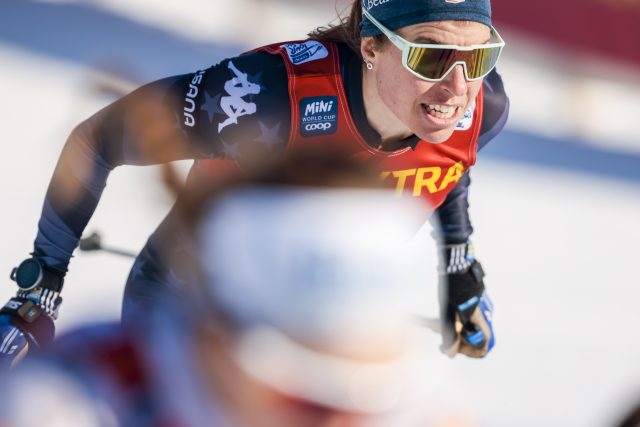
FasterSkier: You mentioned that it’s difficult to process the idea of your numerous near-podium finishes. Psychologically, do you have to direct some energy and attention to overcome just missing the podium, or is it something that you can just brush off and walk away from?
Rosie Brennan: The first time you’re fourth or fifth , that’s pretty exciting because that’s the best ever. But at this point I feel like it’s become a little bit of a habit for me, for lack of a better word. So that is really difficult; it’s something that has been really challenging over the last couple of seasons for me. The mental piece of … just trying to build the confidence to believe that I can do better on the right day … that it’s not my limit. That’s definitely something that I’ve spent quite a lot of time and energy working on. I’m trying my best to find ways to believe that I still have more in me and can get that medal at some point.
FasterSkier: Is that addressed with a sports psychologist, or is that actual physical training?
Rosie Brennan: I think both. I get a lot of confidence through my training and putting in the work. And so that’s part of it, making the work happen and then making it be work that I really believe in or skill sets I want to improve on. Part of it is working with a sports psych and making sure that when those thoughts come in that I know how to deal with them.
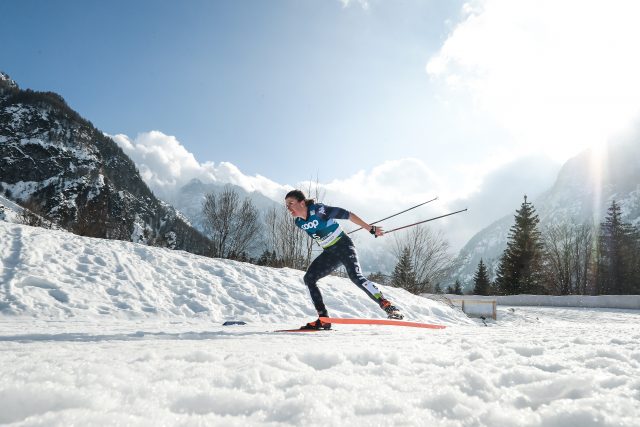
FasterSkier: Regarding one of those hard luck situations that you had last winter, you made a comment to the press after the skiathlon, when your ski came off, about how much attention that negative event was getting, and that you wished they would focus more on the positive events. That seemed to really get a lot of traction with the European press. Were you surprised and maybe taken aback by that?
Rosie Brennan: Yeah, I was. I was surprised by how long that lingered. Even this summer, I’ve had reporters calling me and asking. I didn’t think anything I said was, that crazy, but I guess that’s just what happens when you open your mouth sometimes.
FasterSkier: So not to reignite that fire, but do you think that the media focuses too much on the negatives?
Rosie Brennan: Yeah, I think they’re always looking for the drama. I just felt like I was getting baited to say something bad about the organizers or something like that. Which 100% I would not have. There was nothing they did wrong. They did not cause my crash by any means, and I don’t think there was anything unsafe about the race either. It was just one of those tough luck situations. But I feel that’s pretty common. The few times I do get stopped in the mix zone it will be to ask me about why Frida [Karlsson] crashed, and I’m like ‘I don’t know—ask her.’ It’s always like they’re trying to get you to say something bad about somebody else. I guess you just reach a tipping point with it. It’s just not the way I want to live my life. To me, that’s not why people follow sport. It’s for the inspiration more than the drama. I also think what’s hard is that the media, for at least an American, the amount of media we get is so small that it feels like anytime you even get asked something you really have to make the most of it to try to get somewhere. And I just think that’s such a shame. Because it’s not just Americans that are like that. We’re required [all athletes] to walk through the mix zone after the race and 90% of us just walk straight through it and never get stopped by any media outlet. The Swedes, the Finns, and the Norwegians: they get stopped by their media. So you just feel kind of sad for yourself that nobody cares. It’s the Japanese, the Austrians… there are so many other countries that don’t get stopped either. Myself, I am curious about what their stories are, and I don’t know why other people aren’t, and the media outlets aren’t curious what it’s like for a Japanese racer to be on the circuit. That was kind of my point. Why don’t we find these stories and find a way to actually grow the sport, so that we all have more ground to stand on and have more fans and more money and all that kind of good stuff? So, I would like to see more of that in the future.
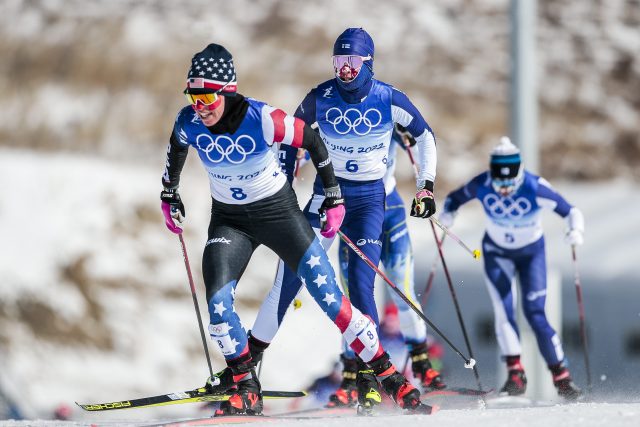
FasterSkier: You’ve had a lot of very close calls, and for lack of a better word, maybe even you could call it hard luck. Perhaps because of that, you’ve developed a reputation as a blue collar, hardworking, grinding athlete. Do you think that’s fair or accurate, and do you accept that? How do you feel about that label?
Rosie Brennan: Oh, I definitely accept that. I definitely take it well. Of course, I wish it wasn’t because I was always almost there. It’s not really my intention, but I do really appreciate it. Maybe it’s because I’m not as present in the media as some other athletes, but I do think it has led to people kind of appreciating my style of racing. Racing is my kind of form of expression or, if you like, it’s my art. I do think it’s very reflective of my personality and who I am, and so I appreciate that people see that. I hope that it does resonate with people and gives them whatever they want to get out of it. But something positive hopefully. And I hope someday I can turn it into really exciting results too.
But after the 30K in Beijing [sixth place, 5.5 seconds off the podium] I was, overwhelmed when I got home that spring and I had so many handwritten letters from largely middle-aged women that were writing me to say how much that race had resonated with them and the way I raced. That meant so much to me because I was racing 100% with my heart that day. I think it was really representative of who I am, in my style and my personality. To know that so many people had seen that and it meant that much to them, that was really heartwarming and special to me. It made me feel like, I need to just continue to race in a way that’s true to myself and shows who I am because it can make a difference to people in their lives.
FasterSkier: You think they were expressing their emotional attachment because of how demonstrably you had committed yourself and were grinding it out through the race? Is that what they were expressing?
Rosie Brennan: Yeah, exactly. I think they’re largely just inspired by the amount of heart I had put into it … no matter the outcome. I don’t know, there are probably people that have gone through something similar in their lives and had never been recognized for it … that’s the hard part. When you fall short of the medal, you could have an amazing performance, but because you don’t have the medal, no one notices. Maybe that’s more representative, unfortunately, of women in a lot of our society. So, I think it really resonated with a lot of women in particular. That kind of sentiment meant so much to me.

FasterSkier: I think part of your reputation as being a hard working athlete is partly due to the fact that your career, reached a new level later in life. You just were really hitting your stride at the World Cup level at an age that was objectively later than many other athletes. Looking back and reflecting on that, is there any particular thing that flipped the switch for you to make you the presence that you are today?
Rosie Brennan: Well, I don’t really think so. That’s what’s kind of interesting about it. I do think it largely just came from consistently putting in the work. So, there wasn’t something that happened that year that just really changed everything other than COVID. But that changed the world for everybody.
But it wasn’t really like all of a sudden, I was, oh, I’m ready, I can do this. It was definitely just a very slow process. But I think once you get to a certain level of fitness you kind of start to believe in yourself more. That’s what’s crazy about the World Cup, the difference between 1st and 30th, in terms of percentage performance it’s actually quite small.
We’re still talking about all the best skiers in the world, so I think to have that huge jump sometimes looks like more than it actually is. It’s just having everything aligned together. But you know I have been building that fitness for many years and building my experience on the World Cup for many years and kind of building my mental strength as well for many years. I think I just finally reached a point where they were all on par on a high enough level that I was able to utilize everything together.
What people often forget too is that I didn’t start Nordic skiing until I was 14. So, if you look at the number of years of actual ski experience from 14 to … when I won that first World Cup [at age 30], that’s 16 years. Probably if you started skiing quite a lot when you’re like say, six, that puts you successful in your mid-20s, low 20s. So, in terms of the hours of ski experience, I think it probably is actually more on par with what you would see for averages for the World Cup, it’s just I just started so much later, so it just took longer.
FasterSkier: Can you share some of your goals for this upcoming winter?
Rosie Brennan: It’s kind of one of those weird years that we have no championships. So, there’s not the obvious thing of like, I want to do well the at the Championships. It kind of leaves a lot of possibilities. But obviously with the World Cups coming both to Canada and to Minneapolis … I’ve kind of put those on my radar wanting to put on a good show for the home crowd. So those are definitely big events on my calendar. Then also the Tour de Ski, which is going to Davos this year which, like you said, is a great venue for me. And then also Toblach which is probably my second favorite venue, next to Davos.
So, I would really like to have a good Tour and make the most of the non-championship year, and then my focus is in North America—because why not?
Join FasterSkier for Part III of our interview with Rosie Brennan where she talks about her skiing future, the pressures of being a female athlete, and social media.
